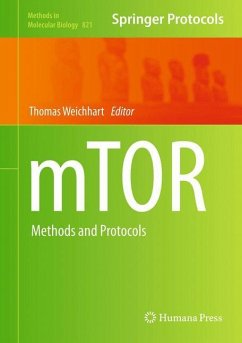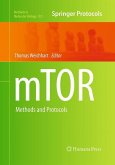Since its discovery, the mammalian target of rapamycin (mTOR) has been shown to regulate many critical molecular processes in eukaryotes such as metabolism, growth, survival, aging, synaptic plasticity, memory, and immunity. In mTOR: Methods and Protocols expert researchers in the field detail many of the methods which are now commonly used to study mTOR. These include methods and techniques used for the study of the mTOR pathway and potential therapeutic applications of mTOR inhibitors such as, immunosuppressive and anticancer agents. Written in the highly successful Methods in Molecular Biology(TM) series format, chapters include introductions to their respective topics, lists of the necessary materials and reagents, step-by-step, readily reproducible laboratory protocols, and key tips on troubleshooting and avoiding known pitfalls.
Authoritative and practical, mTOR: Methods and Protocols seeks to aid scientists in the further study of this crucially important molecule ranging from the analysis of signal transduction events within a cell to the assessment of complex human diseases such as metabolic disorders or cancer.
Authoritative and practical, mTOR: Methods and Protocols seeks to aid scientists in the further study of this crucially important molecule ranging from the analysis of signal transduction events within a cell to the assessment of complex human diseases such as metabolic disorders or cancer.








